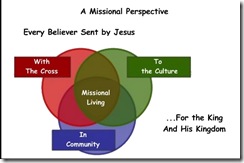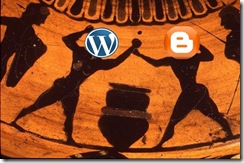Here's something new to make a blog more interesting.
The weblog called Blogger Buster has posted instructions on how to print out individual posts. I've been looking for something like this, and this is a step in the right direction.
It only works on individual posts, but it does a nice job of printing the post in question.
Not that there are that many people interested in doing this, but I like having it around anyway.
Also, it only works with blogger, I don't know if I can find something similar to this for my Wordpress blog or not.
![]()
30 May 2008
Now Print Your Posts
19 May 2008
China Earthquake, 2008
 I have been looking at some of the most incredible scenes of the earthquake that recently struck China. I find the destruction incredulous, hard to believe, and the loss of life is mind numbing.
I have been looking at some of the most incredible scenes of the earthquake that recently struck China. I find the destruction incredulous, hard to believe, and the loss of life is mind numbing.
My friend Jeff is in Chengdu with a team of people, one of the areas hardest hit my the quake. His wife said in an email:
"Jeff called this morning from Chengdu. His team had gone back into the city for the night. He said he was most worried last night, as they were sleeping in a 7- story building in Chengdu. He said he feels better outside under the sky!! He sounded exhausted and said he was beat. They were going back up to the quake zone this morning, Monday morning. His team is registered with the Red Cross and he said they are mostly treating minor injuries and giving tetanus shots. The majorly injured people have made it to refugee camps where medical help is available there. Jeff said all the buildings are gone up there. It is reduced to rubble everywhere!!"
Keep these workers in mind in your prayers and meditations.
 For all the hurt and pain and anguish, certain scenes stirred me to my soul as I watched. One clip shows the spontaneous outbreak of joy and happiness as rescue workers pull a survivor from the wreckage (go to link).
For all the hurt and pain and anguish, certain scenes stirred me to my soul as I watched. One clip shows the spontaneous outbreak of joy and happiness as rescue workers pull a survivor from the wreckage (go to link).
If you haven't seen the pictures and such, both the BBC and the New York Times has some great stuff on their web sites.
The BBC has clips, and the New York Times has photo galleries.
12 May 2008
50 Possible Reasons Why You’re Not Emergent
 Great Post.
Great Post.
Of course, this is humor, but it is still good stuff.
On another note, my thinking on emerging church is in flux. I can see a lot of reasons why it isn't a good alternative to the usual modernist, mainstream vanilla flavor church we have today, but unfortunately it is often the best alternative that we have.
But once in a while there is some good thinking that is going, so I am not ready to jump ship.
For another, more serious take on the idea of missional, take a look here,
And for the big guns, I think this list from the Dream Awakener blog has the names of theologians to draw on for a dialectical conversation to help shape our Ecclesiology.
 Finally, here is an interesting diagram, part of a missional synchroblog. There are other posts from other bloggers on the topic of being missional, scroll down.
Finally, here is an interesting diagram, part of a missional synchroblog. There are other posts from other bloggers on the topic of being missional, scroll down.
07 May 2008
What's Going On?
Some of you (few) who read this blog probably have not noticed that I actually have two blogs with the same material, one on Blogger and the other on WordPress. The question is, of course, why have two blogs with the same material when you can hardly keep up with one?
Quite simply, I want to see which of the two blog sites I prefer. I will eventually keep one site, but this is an anecdotal type of an experiment to see if I have a preference, and why.
I have seen person after person rant and rave about the flexibility and usability of WordPress blogs, but I have also avoided the temptation to rush over and join the ranks, as it were.
Hence the experiment.
So, any thoughts yet? Well, yes, kind of. I can't speak to the so-called flexibility of WordPress, mainly because I use the free one on the website. The server edition seems to be more flexible with a lot more bells and whistles.
Which means right now I find my Blogger blog a bit more flexible, with additional features that can be added to the blog, which you may have noticed.
The main reason is that you can add Java scripts to Blogger, and not to WordPress. For WordPress, most of this is because of security issues to which Java can be vulnerable.
Since I use Windows Live Writer to write my posts and to upload them to my blog (can anything good come out of Galilee?), the issue of who has a better apparatus for composing a post is somewhat moot. But, I feel that WordPress is a bit more rigorous and unforgiving when it comes to writing and editing a post. I've spent way more time on the learning curve trying to find ways to edit and change my blog with WordPress than I have with Blogger.
I think it is easier to upload photos and such to Blogger, but with Live Writer, as I mentioned earlier, it is somewhat immaterial.
So, for now I can't come up with any salient reason to prefer one (blogger) over another (WordPress), so I'll keep the course I'm following now.
Amazon Books
Something else that I've been thinking about lately is the practice of linking a book to Amazon in a post. I've come to the decision that, although I use Amazon from time to time to purchase books, I will not longer send them business through a link in a post. I really don't benefit from it in any tangible way, and I don't mean money issues.
There seems to be an implicit approval that accompanies a link to Amazon that I realize that I may not be ready to give. There are a few business practices that I don't really think are all the beneficial for the customer, but not necessarily immoral or unethical. If anyone is really interested in what I am talking about, I'll address it in a future post.
So, for now I will try to link up to an appropriate page on Google books. It can be frustrating trying to track down a page for a book on Google books. Often a page will not be displayed, mainly because it will keep you from reading the entire book on line.
But for now, I am going to try to link books this way. If you want to buy it from Amazon, that's your business. But there are other places to buy a book.
Images
Something else I've been thinking about is the use of images. For a while I've "borrowed" images from online sites and used them as a frontispiece for my post as an introduction.
I realize that this isn't the most ethical thing to do, so even if I download an image for this purpose, I've decided that I will give an image credit on any images I use on my blog(s) from now on. I've decided that linking to the image isn't always the best way to go, because these images have a way of disappearing into cyberspace.
So, this is what is going on. Really boring stuff, but some things I've wanted to get off my chest, so to speak.
Image credit: original image at http://www.museum.upenn.edu/new/olympics/images/wrestlers.jpg
04 May 2008
Seeking Justice - Take Two
 I've had some trajectories that I've been working on cross paths since the previous post. A reading of a chapter 15 in Scot McKnight's book The Jesus Creed, entitled A Society for Justice (p143ff), provided some insight and dissonance.
I've had some trajectories that I've been working on cross paths since the previous post. A reading of a chapter 15 in Scot McKnight's book The Jesus Creed, entitled A Society for Justice (p143ff), provided some insight and dissonance.
The first trajectory is that we aren't looking just for justice, we should be looking for Kingdom Justice. I began to realize this when I started reading what McKnight had to say in this chapter, which parallels and tracks many of the conclusions I arrived at.
He starts by saying that
Justice is a faded entry on a dog-eared page of our society's lexicon (p145).
This means that most justice is self-centered and self-serving. We cry out at some injustice that happens to us, or something that stirs our self-interest, and we want to reap our share of rewards as recompense for it. Justice is about recompense, getting our pound of flesh, and so on.
A quote from The Jesus Creed is apropos here:
"I think we grab the whole business of justice by the wrong end of the stick," he says. "Currently we ask who did it and how we can punish them. But it makes more sense to ask who was hurt and how we can restore them...." (p149)
Kingdom justice is interested in restoration of the other and society to a relationship with God, not to satisfy some overweening sense justice that I might have.
The second trajectory is that most of the references to justice in scripture is restorative. Justice for the sake of punishing the wrong-doer is minimal, if it exists as all. Let me explain the difference.
Retributive Justice
Retributive Justice is a matter of giving people their just desserts.
- In cases of wrongdoing, someone has lost certain benefits, while someone who does not deserve those benefits has gained them.
- Punishment will set this imbalance straight.
What Is Retributive Justice?
Retributive justice maintains that proportionate punishment is a morally acceptable response to crime, regardless of whether the punishment causes any tangible benefits. Central to retributive justice are the notions of merit and dessert. People who work hard deserve the fruits of their labor, while those who break the rules deserve to be punished. People deserve to be treated in the same way that they voluntarily choose to treat others.
Immanuel Kant discussed the idea. People enjoy the benefits of a rule of law. According to the principle of fair play, the loyal citizen must do his part in this system of reciprocal restraint. An individual who seeks the benefits of living under the rule of law without being willing to make the necessary sacrifices of self-restraint has helped himself to unfair advantages, and the state needs to prevent this to preserve the rule of law.
In some cases someone who merits certain benefits has lost them, while someone who does not deserve those benefits has gained them. Punishment "removes the undeserved benefit by imposing a penalty that in some sense "balances the harm inflicted by the offense." It is imposed as a debt that the wrongdoer owes his fellow citizens.
Retributive justice is in this way backward-looking. Punishment is warranted as a response to a past event of injustice or wrongdoing. It acts to reinforce rules that have been broken and balance the scales of justice.
This concept of justice seeks to regain an equality that the injustice overturned. Some think that it is most simply summed up in the principle of revenge ‘an eye for an eye, and a tooth for a tooth’.
“You have heard that it was said, ‘An eye for an eye and a tooth for a tooth.’ 39 But I say to you, Do not resist the one who is evil. But if anyone slaps you on the right cheek, turn to him the other also. Matthew 5:38-39 (ESV)
But for some, there is a short slide from retribution to revenge. Vengeance is a matter of retaliation, of getting even with those who have hurt us. Like retribution, revenge is a response to wrongs committed against innocent victims and reflects the proportionality of the scales of justice. But revenge focuses on the personal hurt involved and typically involves anger, hatred, bitterness, and resentment.
Deuteronomy 19:17-21 is the passage that Jesus refers to in his teaching above. The problem is that this is often seen as the standard to guide justice, when the best understanding is that this is the minimal level of justice that God desires.
This is similar to the discussion about building codes in the United States. When someone says that a project is up to code, what they are actually saying is that the project meets the minimum level of safety standards. So, this passage serves to limit retaliation, and is not necessarily meant to deal with the standard by which society is to aspire to justice.
On the other hand, I believe that most of scripture is about restorative justice.
Restorative Justice
- Restorative justice is concerned with healing victims' wounds, restoring offenders to law-abiding lives, and repairing harm done to interpersonal relationships and the community.
- It seeks to involve all stakeholders and provide opportunities for those most affected by the crime to be directly involved and to respond to the harm caused.
In a restorative justice process, victims take an active role in what takes place, as well as defining the responsibilities and obligations of offenders. Offenders also participate in this exchange, to understand the harm they have caused to victims, making efforts to set things right, to make amends for their violations, by committing to certain obligations, that may come in the form of reparations, restitution, or community work, and to take active responsibility for it.
This means while fulfilling these obligations may be painful, the goal is not revenge, but restoration of healthy relationships between individuals, and in the communities that have been most affected by the crime.
An example of this is the reconciliation process in South Africa.
For Kingdom justice, the essence of this consists in God’s love for humankind, such that he came to humanity in the person of Jesus (i.e., the incarnation). Through the life, death, and resurrection of Jesus, God demonstrated his merciful and suffering love in response to our wrongdoing, thus making forgiveness and restoration fundamental to how we should respond to human wrongdoing. The background to this understanding of Jesus is in the Hebrew concept of shalom (understood sometimes as the word for salvation, justice, and peace"), and in the ethical and messianic insights of the Hebrew prophets.
McKnight gives two examples of inaugural addresses that focus on Jesus' concept of justice. The first is Luke 4,
18 “The Spirit of the Lord is upon me,
because he has anointed me
to proclaim good news to the poor.
He has sent me to proclaim liberty to the captives
and recovering of sight to the blind,
to set at liberty those who are oppressed,
19 to proclaim the year of the Lord's favor.”
and the second is Matthew 5.
3 “Blessed are the poor in spirit, for theirs is the kingdom of heaven.
4 “Blessed are those who mourn, for they shall be comforted.
5 “Blessed are the meek, for they shall inherit the earth.
In Luke 4, Jesus gives his inaugural address, which has a focus on restorative justice, i.e., Jesus sees his mission as restoring the poor, the prisoner, the blind and the oppressed to community with God and others.
Matthew 5 continues along the same theme where he shows that God's intent is to restore everyone to a relationship with him and with others.
| The poor | Theirs is the Kingdom |
| The hungry | They will be satisfied |
| Those who weep | They will laugh |
| Those who are hated, excluded, are insulted, rejected because of Christ | Great is their reward in heaven |
As McKnight says, "Jesus is concerned with restoring humans so that things are just plain right. (p147)."
At the end of his earthly life, Jesus shows that justice is not retributive, but restorative. Judgment is part of the process of restoring people to God's kingdom so that they can enjoy a relationship with him and others. But the judgment process is not what we expect:
35 For I was hungry and you gave me food, I was thirsty and you gave me drink, I was a stranger and you welcomed me, 36 I was naked and you clothed me, I was sick and you visited me, I was in prison and you came to me.’ 37 Then the righteous will answer him, saying, ‘Lord, when did we see you hungry and feed you, or thirsty and give you drink? 38 And when did we see you a stranger and welcome you, or naked and clothe you? 39 And when did we see you sick or in prison and visit you?’ 40 And the King will answer them, ‘Truly, I say to you, as you did it to one of the least of these my brothers, you did it to me.’
The basis of judgment is not whether or not we prayed the right prayer or believed the right thing (see the discussion in McLaren, Generous Orthodoxy, p45-49), but how the followers of Christ have lived out the mission and commands of Christ in their lives.
Next time, what is the goal of justice?
Image credit: http://www.2mediate.org/News/tbamediation.jpg
| Share this post : |
02 May 2008
Logos Bible Software
![]() Well, I came up with my 3.2 nanoseconds of fame. Logos Bible Software mentioned my blog on their their blog (here). Of course, I was mentioned because they asked people who have Logos Bible Software listed on their blogroll or website to email them and let them know.
Well, I came up with my 3.2 nanoseconds of fame. Logos Bible Software mentioned my blog on their their blog (here). Of course, I was mentioned because they asked people who have Logos Bible Software listed on their blogroll or website to email them and let them know.
I use the Logos software on a regular basis for sermon and lesson preparation, and the software gives me a lot flexibility without my desk crashing from the weight of all those open books. There is also the reality that I can take this software on my computer when I go to meetings and other venues, and not have to haul several bibles and what-not with me. But one of the best reasons why I use it is that when we moved to France from Chicago, IL, I didn't have to pay to have several hundred pounds of books shipped as well.
The software is really quite easy to use, and for language and foundational studies for a sermon, such as vocabulary,structure, grammar, history of the pericope in question, and so forth (i.e., what did the text meant to those who first heard it), it is very useful.
If there is a weakness, it is the lack of what some commentaries refer to as the "bridging context."
Let me try to explain. We have the original or historical context of the text, i.e., the original hearers and participants in that context. Then there is my context, where I am here and now. The question in hermeneutics and interpretation is how do I make the leap from the context of first century Palestine or 9th century Judah to where I live today?
One approach is to place bridges between the different contexts, i.e., obtain information that is similar to my situation, and from there, as I determine how God worked in their context, I can see how he might work in mine.
Basically it is a concept borrowed from Computer Management Systems. For a computer network, these bridges enable applications to obtain context and information from different computers and such, and make use of it.
To me, this is the one area where Logos is not as strong. Probably because Logos focuses on historical and grammatical aids, while a sermon ultimately draws on the philosophy and theological matrix of our existential existence, and tries to make sense of our situation in light of the bridges we have to the the original context. Sometimes we are trying find light in a narrative from people for whom the truth was unintelligible (compare the situation of Isaiah or Jeremiah).
For someone like me, who stands more in the emergent and postmodern stream of Christianity, application sections in many of the commentaries are often of little value, especially some of the stuff that is 50 or 100 years old.
Be that as it may, the software is still very useful, though it does represent a sizeable investment. Most of the modules you can purchase cost as much as the actual print and paper book. But there are advantages to an electronic version of the book, of course. Just be prepared to take a hit when you start looking for modules/books to purchase.
Is Logos the best? Here is a blog that did a study of different bible study software, and tried to give the strengths and weaknesses of each program. Logos actually came out #5 in the list, but I think that is simply based on his criteria. I think the categories are good, but they will obviously weigh in differently for each person.
For example, interface as high on my list, as well as searching. But Logos rates high in interface (4 out of 5), but mediocre in searching (3 out of 5). I would agree ostensible with that, because the Logos search is tough to get a handle on.
It's worth looking into it.



